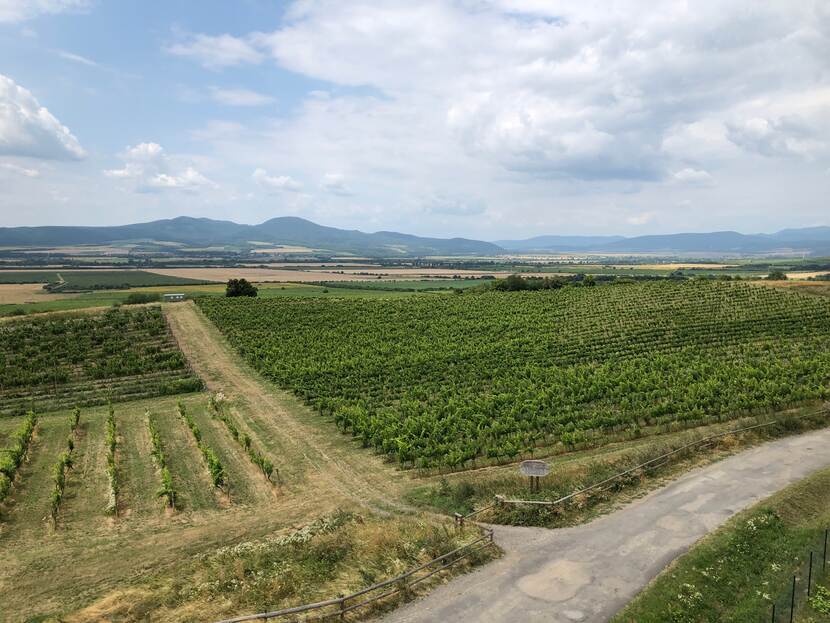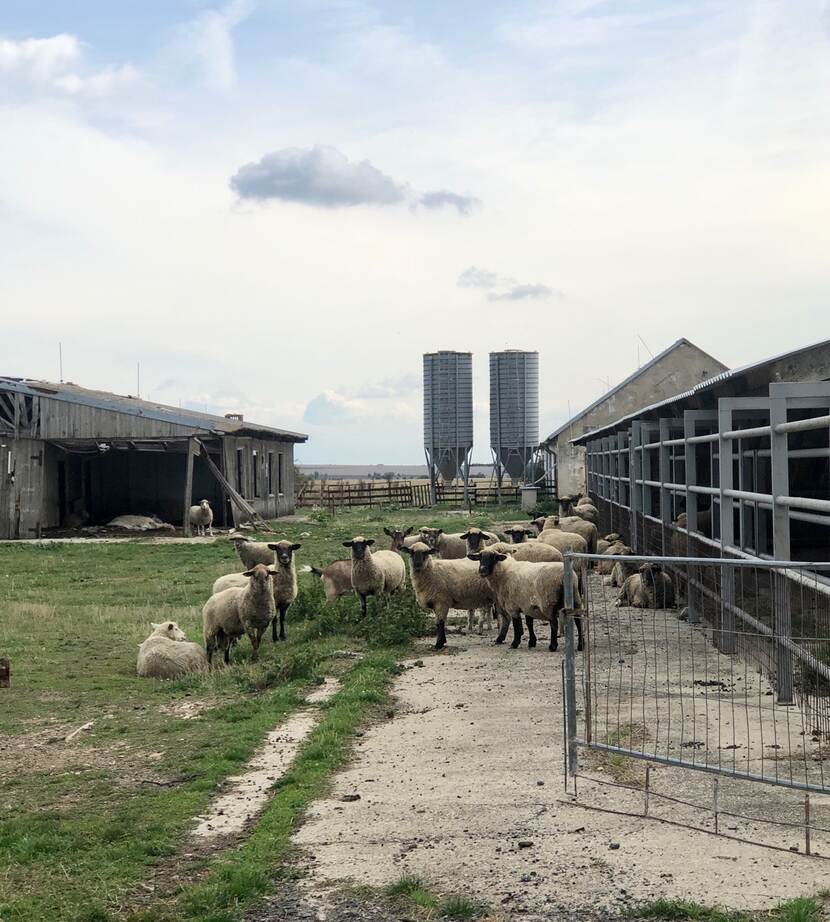OECD Country report Slovakia
The OECD-review of the economy of the Slovak Republic: What are the messages of the OECD on agricultural and nature policy, what are the messages of the organization relevant for the agro-sector doing business with Slovakia?

The Organization of Economic Cooperation and Development (OECD) reviews every two years the economies of member states. In June 2021 the OECD has published the economic review of the Netherlands (see: https://ap.lc/VhU5B).
Each Economic Survey provides a comprehensive analysis of economic developments, with chapters covering key economic challenges and policy recommendations addressing these challenges. The OECD-team works intensively with representatives of the reviewed country and uses different expertise and data for its report with recommendations.
The latest OECD-review is the review of the economy of the Slovak Republic. This article will give an overview of the agriculture and nature elements of the report as well as the important elements for doing business in the Slovak Republic.
General messages from the OECD for the Slovak economy
The OECD recommendations for the Slovak economy are clear: planned reforms are crucial, recovery funds essential for the Slovak economy, and confirms the importance of scaling up vaccination campaign, continuing planned fiscal support, improving labour regulation, accelerating carbon reduction, tax relief for low incomes and improving government procurement processes.

Innovation
Expenditures of the Slovak Republic on research and development and its innovation capacity are below other OECD-countries. The R&D expenditures in the various sectors are highly dependent on EU structural funds. Slovakia also lags significantly behind in patent applications, and the share of innovative firms.
In addition, research collaboration with innovative companies should be strengthened in the assessment of higher education institutions and public research institutions, and funding should effectively distinguish high- from low-quality research. In addition, higher education institutions need to be able to offer well-remunerated and high-quality research positions to attract high-quality foreign faculty members. As an intermediate step, the government should promote academic exchange programs and scientific collaboration.
Education and R&D
Boosting productivity growth, which has slowed down significantly in Slovakia since the global financial crisis, is key to accelerating economic convergence and improving living standards in ageing societies. An important element needed to maintain stable economic growth is the development and implementation of new technologies, a well-developed and modern educational system and a high level of the knowledge-based society.
The education system in Slovakia is not well adapted to the needs of the modern economy - low level of digitization, low investment in new technologies, no support for children from poorer areas, or a lack of equal opportunities. There are large disproportions between schools in large centers and in villages. Higher education, as well as primary schools, should be introduced to a higher level of technologization and digitization, although this problem concerns many areas of life in Slovakia.
Systemic differences that act unfavorably are especially visible in the comparison of Slovakia with other OECD countries. PISA results, lag significantly behind those in other OECD countries, especially in reading and science literacy, while results in mathematics are close to the OECD average.
Moreover, expenditure on research and development (R&D) is internationally low, especially business R&D. R&D expenditure in other sectors is highly dependent on EU structural funds.
Slovak universities cannot boast of a high level of foreign cooperation (including a very low level of internationalization - especially among academic staff), they rank poorly in international rankings - although this is a common situation in the region, universities from Poland and the Czech Republic rank a lot in these rankings more preferably. Most international cooperation at the university level takes place with countries from the region.
The share of Slovak secondary school graduates who study abroad is the second highest in the OECD. The students who leave are the most successful students according to examination results and few of them intend to return home after their studies. This implies that Slovakia is losing some of its most-skilled workforce and potential researchers. If the fact that there is low support for business R&D investment is low by international comparison is added in, the situation becomes difficult.

Green transition and carbon neutral economy
The use of inefficient and high-emission boilers and heaters and the burning of poor-quality fuel such as coal, wood or waste are the main problems that Slovakia has to face in the era of combating climate change.
According to the research carried out under the International Visegrad Fund, Slovakia is one of the most energy-intensive economies in the EU Member States, with various sectors of high-carbon production, which is why the government often puts the protection of industry over low-carbon targets. The mining industry has strong political support all the time through subsidies to coal and it is a situation similar to that in Poland. Support for renewable energy is rather low, although it is slowly gaining importance under various subsidy systems. Slovakia has a high share of nuclear energy, but also hydropower in its energy mix, which has a very high share in the renewable energy mix.
In the case of Slovakia, as in neighboring countries, it will be important to promote solutions from the circular economy. Moving to a circular economy, e.g. by promoting re-use, recyclability and secondary raw materials markets, can boost Slovakia’s resource productivity and efficient use of natural resources, reduce greenhouse gas emissions, generate cost savings and create jobs.
In addition, investments in new technologies, more environmentally friendly, renewable energy sources and social education are needed, which would explain the need for certain system changes.

Business environment
Insufficiently friendly regulations, bureaucracy and a low level of administrative and judicial digitization with low social trust and a still high level of corruption are the greatest business difficulties in Slovakia.
Market regulations are much more complicated than the average level for OECD countries. It is especially visible in the case of strategic sectors and new business areas. Slovakia’s administrative burdens for start-ups, mainly due to licenses and permits, remain high.
In addition, public ownership remains widespread in some network sectors such as gas and rail. Finally, regulations also overly restrict competition in professional services especially for lawyers, notaries, architects and civil engineers. Judicial efficiency has improved thanks to ongoing reforms. Courts perform efficiently in terms of length of proceedings and clearance rate in litigious civil and commercial cases, but the quality of digital services (e.g. electronic court files) can be further enhanced and the establishment of a new electronic business register has been postponed due to delays in public procurement.
High levels of perceived corruption and a low level of trust in institutions are longstanding concerns in Slovakia. For example, 88% of companies consider corruption to be widespread (compared to an EU average of 63%) and 53% of companies consider that corruption is a problem when doing business compared to an EU average of 37%.
Aging society
The aging population is a global trend, but in the case of Slovakia, the economy of the elderly is not well-parked (the situation applies to the entire region of Central and Eastern Europe). The share of the working-age population is expected to shrink by about a fifth between 2021 and 2050 while the share of the population aged 65 and above will double. Labor productivity is quite low and the retirement age is relatively low (the retirement age in Slovakia is 64 years).
Full report
Link to press release and full report of the OECD: